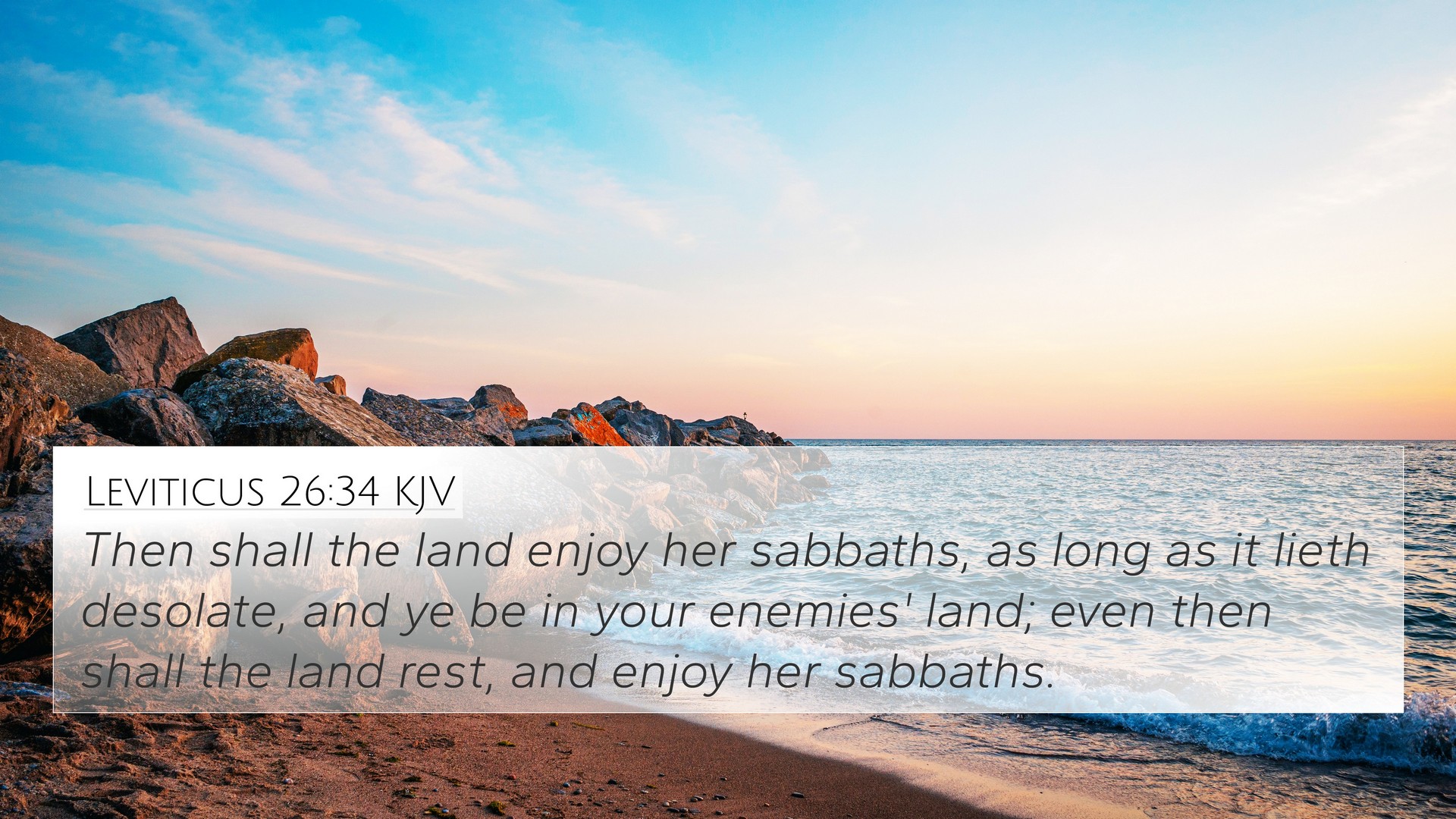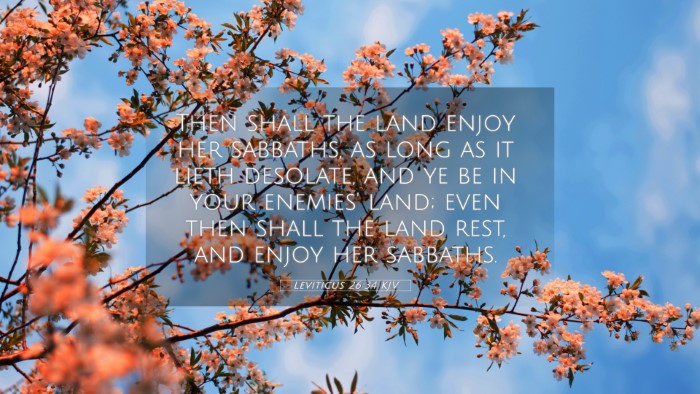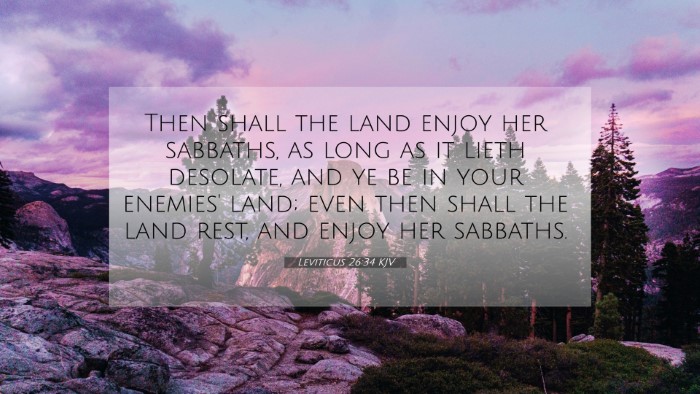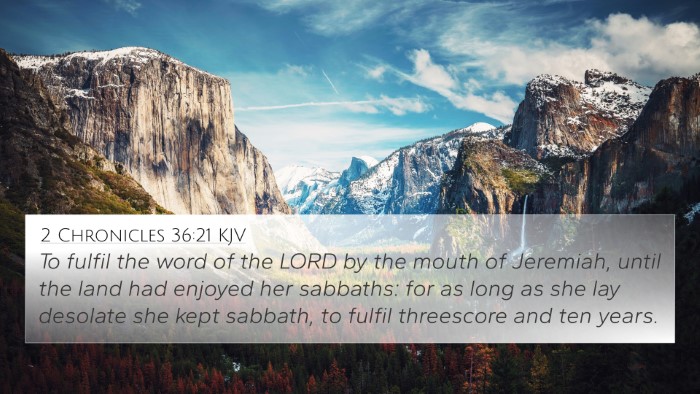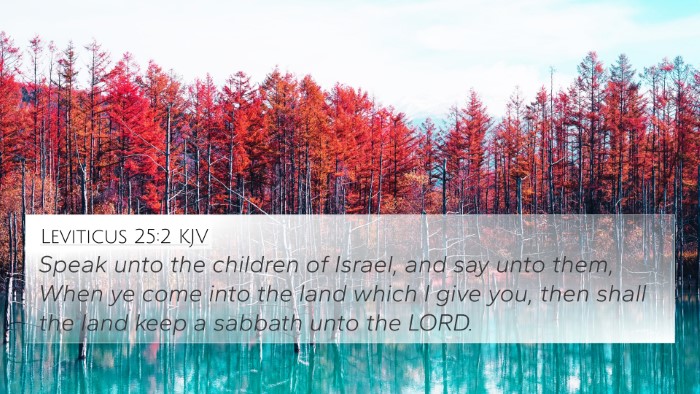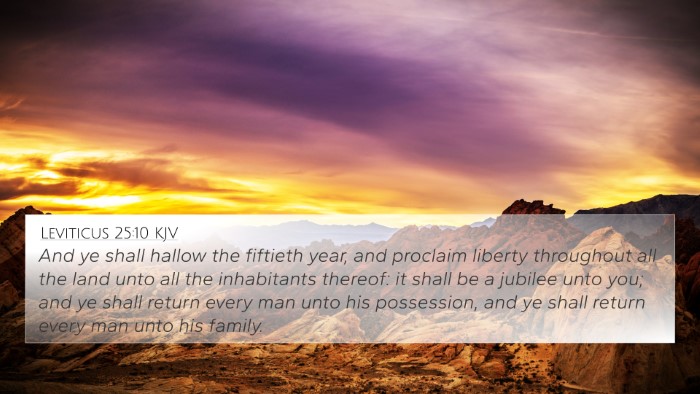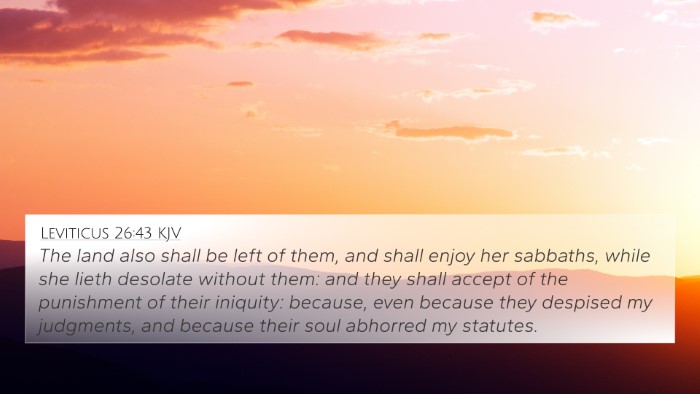Understanding Leviticus 26:34
Leviticus 26:34 (KJV): "Then shall the land enjoy her sabbaths, as long as it lieth desolate, and ye be in your enemies' land; even then shall the land rest, and enjoy her sabbaths."
Overview of Leviticus 26:34
This verse signifies a profound connection between the people of Israel and their land, contextualizing the significance of the Sabbath years and the consequences of unfaithfulness to God's commands. The desolation of the land serves as a poignant reminder of the repercussions of turning away from divine ordinances.
Thematic Analysis
Leviticus 26:34 touches on several key themes found throughout the Bible:
- Divine Judgment: The verse reflects on God's judgment and the resulting desolation of the land.
- Restoration: Highlights the possibility of future restoration once God’s commands are adhered to.
- The Sabbath: Introduces the concept of Sabbath as not just a day but a principle that extends to the land itself.
- Intercessory Nature of the Land: The land, personified, is depicted to enjoy rest as a consequence of the people's actions.
Insights from Public Domain Commentaries
Various commentaries provide rich insights into the meaning of this verse:
Matthew Henry's Commentary
Henry emphasizes that the land's rest signifies both God's judgment and mercy. The land is permitted to rest as a consequence of Israel's disobedience, highlighting the sacredness of the Sabbath and the necessity of honoring God's commandments concerning rest.
Albert Barnes' Notes
Barnes elaborates on the cyclical nature of blessings and curses in accordance with Israel's faithfulness. He notes that the desolation is not permanent, as it serves a divine purpose—allowing the land to recuperate while awaiting Israel's return to God.
Adam Clarke's Commentary
Clarke discusses how the verse illustrates the connection between the land and the people's faithfulness to God. He points out the significance of sabbaths not only for the worship of God but also for the environmental and agricultural health of the land, drawing parallels with later Biblical principles of stewardship.
Cross-references to Leviticus 26:34
Leviticus 26:34 connects with several important scripture passages, enhancing our understanding of its meaning:
- Exodus 23:10-11: Discusses the sabbath rest for the land every seventh year.
- 2 Chronicles 36:21: Describes the land enjoying its sabbaths during the Babylonian captivity.
- Deuteronomy 15:1-2: Relates to the practice of the sabbath of debts, also indicative of God's mercy.
- Jeremiah 25:11-12: Prophesies the desolation of the land for seventy years.
- Isaiah 14:1-2: Speaks to restoration and the return of the exiles, hinting at the land's eventual recovery.
- Ezekiel 36:32: The reaffirmation of God’s promise to restore Israel and the land.
- Matthew 12:8: Jesus speaks to the Lord of the Sabbath, underlining its significance in the New Covenant.
- Hebrews 4:9-10: Discusses the ‘rest’ provided by God, fulfilling the Sabbath concept in Christ.
- Mark 2:27: "The Sabbath was made for man, not man for the Sabbath," emphasizing the rest's intention.
- Genesis 1:31: Refers to God's pronouncement that creation is 'very good,' foundational for the idea of rest.
Connections and Implications
The connections between Leviticus 26:34 and these verses illuminate the comprehensive nature of the Biblical narrative regarding rest, judgment, and restoration. Understanding these links encourages a greater appreciation of the nuances in scripture, enhancing one's study of Biblical themes and principles.
Cross-Referencing Methods
Using Bible cross-references is crucial for deepening one's understanding of scripture. Here are some tools and methods for effective cross-referencing:
- Bible Concordance: This invaluable tool helps locate specific terms and themes across scripture.
- Bible Cross-Reference Guide: Guides can assist in identifying significant parallels and connections.
- Study Bibles: Many study Bibles contain marginal notes for cross-references that facilitate deeper study.
- Online Resources: Numerous platforms offer searchable databases for finding connections between verses.
- Chain References: Create a personal index of scripture that links themes for future reference.
Conclusion
Leviticus 26:34 serves as a critical reminder of the covenant relationship between God and His people, emphasizing the importance of obedience, rest, and eventual restoration. The insights garnered from public commentaries, along with the rich tapestry of related scriptures, create a profound understanding of this verse within the broader Biblical context.
